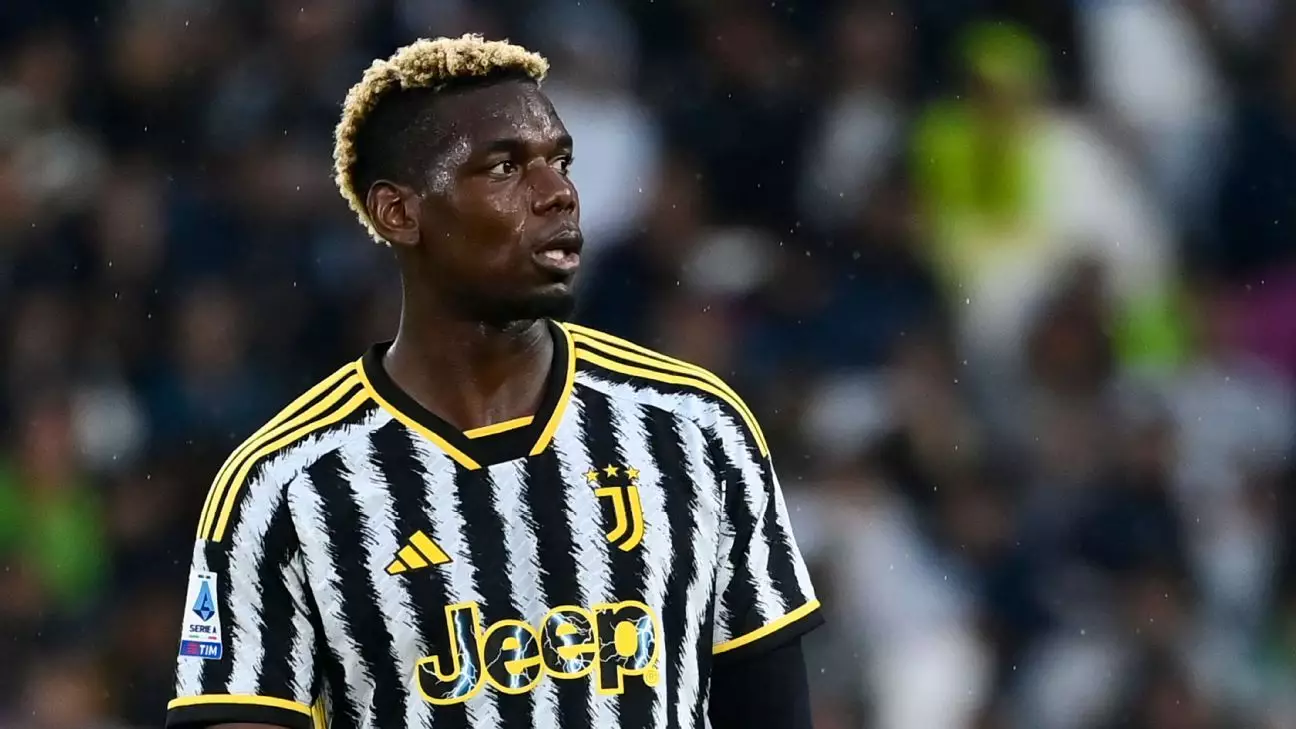In the world of professional sports, few narratives are as compelling—and contentious—as those involving athletes facing doping allegations. Recently, Paul Pogba, a celebrated World Cup-winning footballer, found himself enmeshed in such a narrative. Initially handed a staggering four-year suspension after testing positive for a banned substance, Pogba’s case has taken a significant turn. The Court of Arbitration for Sport (CAS) has now reduced his suspension to 18 months, starting from September 11, 2023, marking a crucial juncture in his storied career.
Pogba’s positive test for DHEA—a substance known to elevate testosterone levels—following a Serie A match in August 2023 set the stage for what he described as a ‘nightmare.’ This suspension was not merely a setback for the 31-year-old midfielder, but a considerable blow to his aspirations both at his club, Juventus, and on the international stage.
The reduction of Pogba’s suspension opens a discussion on the principles of human error and intention, particularly within the realm of sports doping. The World Anti-Doping Code typically mandates four-year bans for positive doping tests. However, exceptions exist for athletes who can demonstrably prove that their violation was unintentional—whether due to contamination or other unforeseeable circumstances. This legal framework often grapples with the balance between upholding the integrity of the sport and recognizing the complexities of individual cases.
Pogba asserted his innocence throughout the ordeal, claiming that he had consumed a nutritional supplement prescribed by a doctor that inadvertently led to the positive test. His vehement denial of knowingly breaching doping regulations serves as a reminder of the critical importance of education in sports about the substances consumed by athletes.
The implications of the CAS decision are monumental. Pogba is now eligible to return to competitive football by March 2025, allowing him to actively pursue his dreams once more. “Finally the nightmare is over,” he stated following the announcement. His eagerness to return underscores the emotional toll that such a suspension inflicts, not just on an athlete’s career but on their mental well-being.
The context of Pogba’s last competitive match, coupled with an injury-plagued period since his return to Juventus in 2022, complicates matters further. While he remained committed to maintaining his fitness during the suspension, the question remains: how rapidly can he regain his match sharpness? Not having played a competitive game in almost 14 months presents both physical and psychological hurdles to overcome.
While Pogba has a contract with Juventus until June 2026, the lasting impact of this suspension on his legacy remains uncertain. His illustrious career, including a pivotal role in France’s 2018 World Cup triumph, hangs in the balance, now tinged with the shadow of a doping scandal. The narrative is multifaceted; will he be remembered for his successes, or will the controversy overshadow his achievements?
Furthermore, the sports community must consider how such cases reflect broader issues of athlete support systems. Ensuring athletes are informed about the risks associated with doping violations must be a priority. This incident can serve as an enlightening moment for both current and aspiring athletes to understand the intricacies involved in maintaining compliance with anti-doping regulations.
Paul Pogba’s situation encapsulates the trials faced by elite athletes navigating the often murky waters of competition and integrity. The substantial reduction in his doping suspension is a significant progression towards clarity but does little to erase the challenges that lie ahead. Pogba’s path back to the pitch symbolizes not only athletic perseverance but the continual need for an open dialogue about doping in sports. As he prepares to reclaim his place in football, all eyes will be watching, not just for his on-field performances but for how he manages this pivotal phase of his career.

